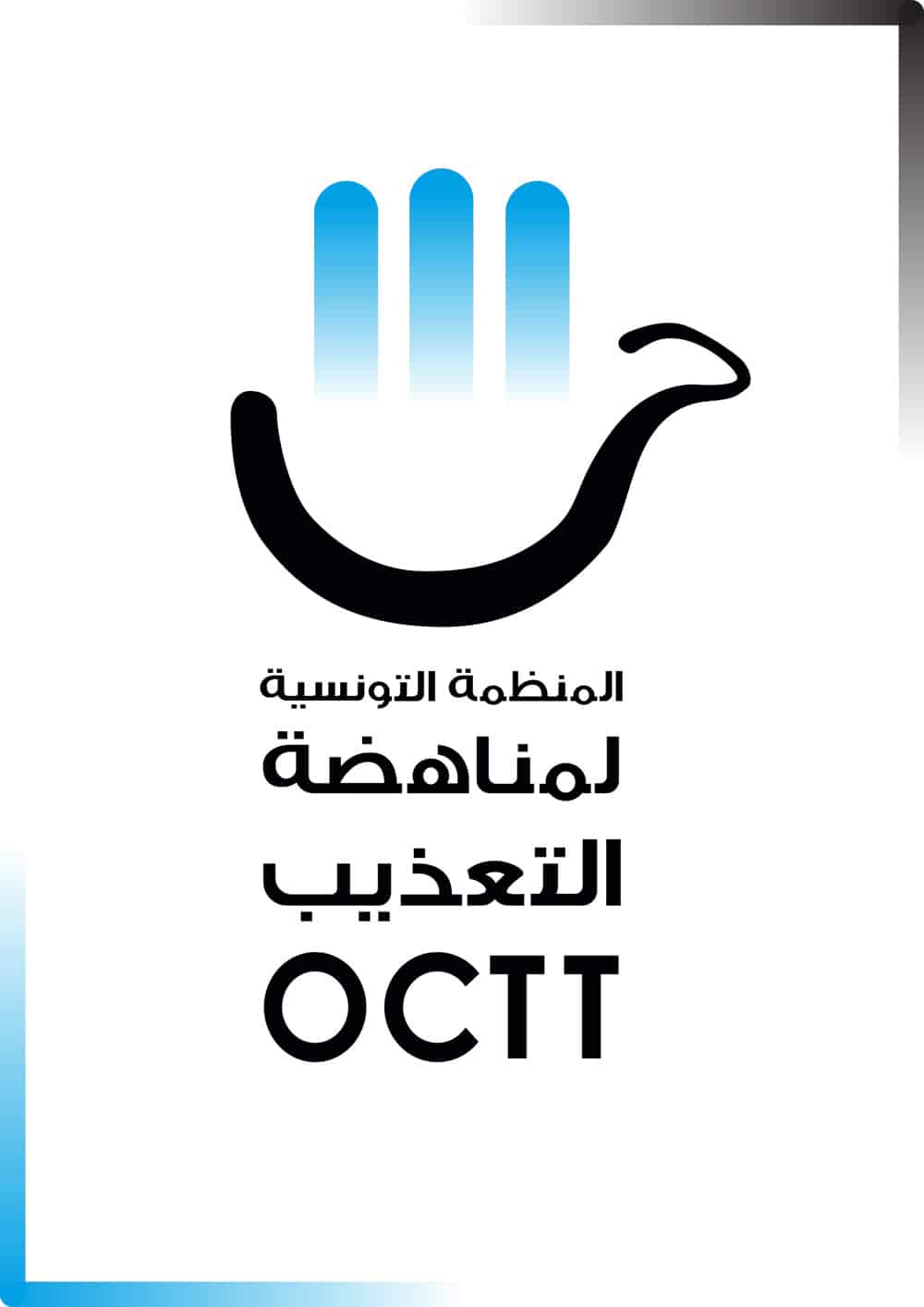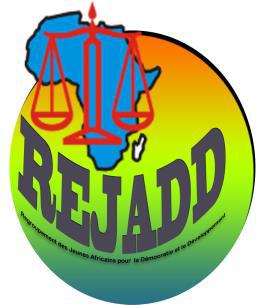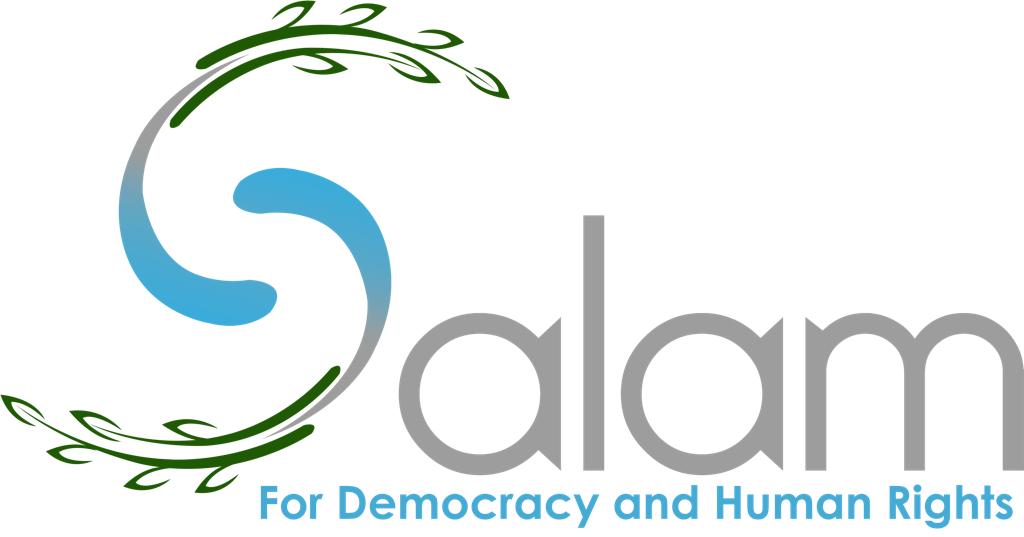Your search “Keep%20the%20death%20penalty%abolished%20in%20the%20ePhilippfines%20e%20e%20e%20e%20e%20e%20e%20e%20e%20e/page/www.deathpenaltyindia.com/img/pages/resources/20e17Statistics.pdf ”
Document(s)
Innocence Lost: A Play About Steven Truscott
By Beverley Cooper / Centaur Theater Company, on 1 January 2013
2013
Working with...
More details See the document
In 1959, the Canadian justice system nearly killed an innocent 14-year-old boy. The fact that Steven Truscott was wrongly convicted of the rape and murder of 12-year-old Lynne Harper that year, and sentenced to hang, now seems surreal. All the more so since he’s alive and well and living quietly with his family after 10 years of unjust incarceration – and many more years as an obscure factory worker, father and grandfather, after suffering the consequences of a destroyed reputation.
- Document type Working with...
- Themes list Public opinion, Innocence,
Document(s)
Emergency Exit: Which actions for supporting offenders close te release?
By Save Anthony, on 1 January 2013
NGO report
More details See the document
In a recent research , Emergency Exit: Which actions for supporting offenders close te release?, 13 key practices have proven to help resettle successfully ex offenders into society at their exit of prison and prevent them from re-offending.
- Document type NGO report
- Themes list Public debate,
Document(s)
Article: “Troy Davis: Why Poster Boys Don’t Matter”
By David R. Dow / Guerinca, on 8 September 2020
2020
Academic report
United States
More details See the document
Is the Troy Davis case the tipping point on the capital punishment debate? Unfortunately, not until the majority of Americans believes that killing—even an unquestionably guilty murderer—is wrong.
- Document type Academic report
- Countries list United States
- Themes list Innocence,
Document(s)
Film “Kill Troy Killing Me”
By Garry A. Boast / Cerebral Motion Productions, on 8 September 2020
Academic report
United States
More details See the document
A death penalty abolitionist (Martina Correia) must sound the alarms of our criminal justice system in time to save her brother from lethal injection.
- Document type Academic report
- Countries list United States
- Themes list Innocence,
Document(s)
Killer Art: Florida’s Death Row Artists
By Chris Dahl / CreateSpace Independent Publishing Platform, on 8 September 2020
Book
United States
More details See the document
Art and letters from the men who await death in the Union Correctional Institution in Raiford, Florida
- Document type Book
- Countries list United States
- Themes list Cruel, Inhuman and Degrading Treatment and Punishment, Death Row Conditions, Country/Regional profiles,
Document(s)
Film: “Execution”
By Steven Scaffidi / Ghost Rider Pictures, on 8 September 2020
Academic report
More details See the document
Amnesty International Presents a Groundbreaking Film Event That Takes the Audience to the Front Row of an Execution–Regal Cinemas opens its doors in eight major cities across America for this first-of-a-kind motion picture less than 1 week after California’s attempt to repeal the death penalty fails.
- Document type Academic report
- Themes list Innocence,
Document(s)
Film: “The Execution of Wanda Jean”
By Liz Garbus / New Video Group, on 8 September 2020
Academic report
United States
More details See the document
In THE EXECUTION OF WANDA JEAN, award-winning filmmaker Liz Garbus continues her investigations into the American criminal justice system with the compelling story of convicted murderess Wanda Jean Allen
- Document type Academic report
- Countries list United States
- Themes list Trend Towards Abolition,
Document(s)
BN at 6 – Our Stories, Our Miracles: Sentenced to Death, An Innocent Man Steps Out After 24 Years in Prison – Olatunji Olaide shares his story of Survival, Freedom & Hope
By Adeola Adeyemo / Bellanaija, on 8 September 2020
Article
Nigeria
More details See the document
Olatunji Olaide was wrongfully arrested and subsequently sentenced to death. He shares the harrowing experience of his time in prison and his survival and freedom with BN and how he kept his head high in the face of the storm.We hope that you are inspired by it.
- Document type Article
- Countries list Nigeria
- Themes list Innocence,
Document(s)
Foreign nationals facing the death penalty in the USA: the important role of consular officials
By Reprieve, on 1 January 2012
2012
Lobbying
More details See the document
This video explains the role of consular officers in protecting their nationals when they face the death penalty abroad.
- Document type Lobbying
- Themes list Foreign Nationals,
Document(s)
Predictors of Miscarriages of Justice in Capital Cases
By Talia Roitberg Harmon / Justice Quarterly, on 1 January 2001
2001
Article
United States
More details See the document
Prior research on wrongful convictions in capital cases focused primarily on qualitative methods designed to provide in-depth descriptive analyses of these cases. In contrast, this study is a quantitative comparison between 76 documented cases from 1970 to 1998, in which prisoners were released from death row because of “doubts about their guilt,” and a matched group of inmates who were executed. Through the use of a logistic regression model, significant predictors of cases that result in a release from death row as opposed to an execution, are identified. The final section of this study focuses on policy implications that may decrease the risk of error in capital cases. Additional lines of research are suggested in an effort to increase understanding of miscarriages of justice in such cases.
- Document type Article
- Countries list United States
- Themes list Innocence,
Document(s)
Trial and Errors : The Texas Death Penalty
By Lisa Maxwell / AMITI, on 1 January 2013
2013
Book
United States
More details See the document
TRIAL & ERROR takes a thorough look at the most controversial issues of the Texas Death Penalty that have raised questions of fairness and equality. Read words of inmates on death row in interviews conducted by the Amiti Organization, then judge for yourself whether the Death Penalty is administering justice or injustice.
- Document type Book
- Countries list United States
- Themes list Death Row Conditions, Death Penalty, Country/Regional profiles,
Document(s)
The Death Penalty Project’s Annual Lecture 2014
By William A. Schabas / Death Penalty Project, on 8 September 2020
2020
Multimedia content
More details See the document
On 28th January 2014, DPP’s 3rd lecture was held at the Inner Temple, London. Professor William Schabas delivered a lecture entitled “Universal Abolition: Only a Decade Away“. This video recording of the lecture includes the Q&A session.
- Document type Multimedia content
- Themes list Trend Towards Abolition,
Document(s)
Quest for Justice: Defending the Damned
By Richard Jaffe / New Horizon Press, on 1 January 2012
2012
Book
United States
More details See the document
In Quest For Justice, the author takes readers into the Bo Cochran and Eric Rudolph cases, along with those of Randall Padgett and Judge Jack Montgomery, in a conversational, story-driven narrative that offers personal insights and intimate views into these complex individuals and cases.
- Document type Book
- Countries list United States
- Themes list Due Process ,
Document(s)
A Wild Justice: The Death and Resurrection of Capital Punishment in America
By Evan J. Mandery / W. W. Norton & Company, on 1 January 2013
2013
Book
United States
More details See the document
For two hundred years, the constitutionality of capital punishment had been axiomatic. But in 1962, Justice Arthur Goldberg and his clerk Alan Dershowitz dared to suggest otherwise, launching an underfunded band of civil rights attorneys on a quixotic crusade. In 1972, in a most unlikely victory, the Supreme Court struck down Georgia’s death penalty law in Furman v. Georgia. Though the decision had sharply divided the justices, nearly everyone, including the justices themselves, believed Furman would mean the end of executions in America.Instead, states responded with a swift and decisive showing of support for capital punishment. As anxiety about crime rose and public approval of the Supreme Court declined, the stage was set in 1976 for Gregg v. Georgia, in which the Court dramatically reversed direction.A Wild Justice is an extraordinary behind-the-scenes look at the Court, the justices, and the political complexities of one of the most racially charged and morally vexing issues of our time.
- Document type Book
- Countries list United States
- Themes list Due Process , Country/Regional profiles,
Document(s)
Beyond the Death Penalty: Reflections on Punishment (Maastricht Series in Human Rights)
By Jacques Claessen / Hans Nelen / Intersentia , on 1 January 2012
2012
Book
More details See the document
This book contains a selection of papers that were presented during the multidisciplinary conference “Beyond the Death Penalty: Reflections on Punishment,” organized by the Maastricht Center for Human Rights. The aim of the conference was to reflect on punishment from a variety of angles and to give some food for thought to the contemporary debate on crime and punishment. After a first cluster of chapters with a strong focus on capital punishment, an intriguing mixture of topics in relation to punishment is presented, including chapters on the populist context of contemporary crime control, reconciliation and rehabilitation, prison life, and efficiency and effectiveness.
- Document type Book
- Themes list Cruel, Inhuman and Degrading Treatment and Punishment,
Document(s)
Circumstances of Offense: Robert “Saint” Bailey on Death Row
By Chris Dahl / CreateSpace Independent Publishing Platform, on 8 September 2020
2020
Book
United States
More details See the document
This book is a first-hand account of the life of Simon City Royals gangster Robert “Saint” Bailey who is currently on Death Row in Raiford, Florida. He killed a law enforcement officer in 2005.
- Document type Book
- Countries list United States
- Themes list Innocence, Country/Regional profiles,
Document(s)
Incendiary: the Willingham case
By Steve Mims / Joe Bailey Jr. / Yokel, on 1 January 2011
2011
Legal Representation
More details See the document
This film, by Steve Mims and Joe Bailey Jr., is just what its title implies: a match being lit to a tinderpile of flimsy evidence that led to the execution of Cameron Todd Willingham in Texas in 2004 after his 1992 conviction for setting the fire that killed his three babies.
- Document type Legal Representation
- Themes list Innocence,
Document(s)
Capital Punishment: Strategies for Abolition
By William A. Schabas / Peter Hodgkinson / Cambridge University Press, on 1 January 2004
2004
Book
Georgia
More details See the document
The editors of this study isolate the core issues influencing legislation so that they can be incorporated into strategies that advise governments in changing their policy on capital punishment. What are the critical factors determining whether a country replaces, retains or restores the death penalty? Why do some countries maintain the death penalty in theory, but in reality rarely invoke it? These questions and others are explored in chapters on South Korea, Lithuania, Georgia, Japan and the British Caribbean Commonwealth, as well as the U.S.
- Document type Book
- Countries list Georgia
- Themes list Networks,
Document(s)
Condemned to Die
By Mark Davis / SBS, on 1 January 2011
2011
Legal Representation
More details See the document
Presenter Mark Davis travels to Indonesia with the mother of Bali Nine member Myuran Sukumaran, as she visits her son for the first time since his final death sentence appeal was rejected.
- Document type Legal Representation
- Themes list Drug Offences,
Document(s)
The Executioner’s Song
By Norman Mailer / Vintage , on 8 September 2020
2020
Book
United States
More details See the document
Norman Mailer tells Gary Gilmore’s story, and those of the men and women caught up in his procession toward the firing squad, with implacable authority, steely compassion, and a restraint that evokes the parched landscapes and stern theology of Gilmore’s Utah.
- Document type Book
- Countries list United States
- Themes list Networks,
Document(s)
MVFHR Asia Speech Tour in Korea & Japan
By Taiwan Alliance to End the Death Penalty / Murder Victims' Families for Human Rights / YouTube, on 8 September 2020
Academic report
Japan
enMore details See the document
MVFHR is an organization formed by a group of victim’s family members. They have traveled across the ocean all the way down to Korea, Japan, and Taiwan to share their stories and views on the death penalty with the local victim’s family members, attorneys, and human rights organizations.
- Document type Academic report
- Countries list Japan
- Themes list Murder Victims' Families,
- Available languages MVFHR 飄洋過海來看你:看見被害人 20100704 台北信義誠品
Document(s)
Victims, We Care
By Taiwan Alliance to End the Death Penalty / Murder Victims' Families for Human Rights / YouTube, on 1 January 2011
2011
Working with...
More details See the document
Victims, We Care
- Document type Working with...
- Themes list Murder Victims' Families,
Document(s)
When the State Kills: Capital Punishment and the American Condition
By Austin Sarat / Princeton University Press, on 1 January 2001
2001
Book
United States
More details See the document
Is capital punishment just? Does it deter people from murder? What is the risk that we will execute innocent people? These are the usual questions at the heart of the increasingly heated debate about capital punishment in America. In this bold and impassioned book, Austin Sarat seeks to change the terms of that debate. Capital punishment must be stopped, Sarat argues, because it undermines our democratic society.Sarat unflinchingly exposes us to the realities of state killing. He examines its foundations in ideas about revenge and retribution. He takes us inside the courtroom of a capital trial, interviews jurors and lawyers who make decisions about life and death, and assesses the arguments swirling around Timothy McVeigh and his trial for the bombing in Oklahoma City. Aided by a series of unsettling color photographs, he traces Americans’ evolving quest for new methods of execution, and explores the place of capital punishment in popular culture by examining such films as Dead Man Walking, The Last Dance, and The Green Mile.Sarat argues that state executions, once used by monarchs as symbolic displays of power, gained acceptance among Americans as a sign of the people’s sovereignty. Yet today when the state kills, it does so in a bureaucratic procedure hidden from view and for which no one in particular takes responsibility. He uncovers the forces that sustain America’s killing culture, including overheated political rhetoric, racial prejudice, and the desire for a world without moral ambiguity. Capital punishment, Sarat shows, ultimately leaves Americans more divided, hostile, indifferent to life’s complexities, and much further from solving the nation’s ills. In short, it leaves us with an impoverished democracy.The book’s powerful and sobering conclusions point to a new abolitionist politics, in which capital punishment should be banned not only on ethical grounds but also for what it does to Americans and what we cherish.
- Document type Book
- Countries list United States
- Themes list Networks,
Document(s)
The Death of Innocents: An Eyewitness Account of Wrongful Executions
By Helen Prejean / Vintage , on 1 January 2005
2005
Book
United States
More details See the document
She tells the story of two inmates she came to know as a spiritual adviser. Dobie Williams, a poor black man with an IQ of 65 from rural Louisiana, was executed after being represented by incompetent counsel and found guilty by an all-white jury based mostly on conjecture and speculation. Joseph O’Dell was convicted of murder after the court heard from an inmate who later admitted to giving false testimony for his own benefit. O’Dell received neither an evidentiary hearing nor potentially exculpatory DNA testing and was executed, insisting on his innocence the whole while. Besides exploring the shaky cases against them, Prejean describes in vivid detail the thoughts and feelings of Williams and O’Dell as their bids for clemency fail and they are put to death. The second part of the book details “the machinery of death,” the legal process that Supreme Court Justice Harry Blackmun, dismayed at the inequities of the death penalty, cited as his reason for resigning and that current justice Antonin Scalia has boasted of being a part of.
- Document type Book
- Countries list United States
- Themes list Networks,
Document(s)
Murdering Myths: The Story Behind the Death Penalty
By Judith W. Kay / Rowman & Littlefield Publishers, Inc., on 1 January 2005
Book
United States
More details See the document
In Murdering Myths: The Story Behind the Death Penalty, Judith Kay goes beyond the hype and statistics to examine Americans’ deep-seated beliefs about crime and punishment. She argues that Americans share a counter-productive idea of justice–that punishment corrects bad behavior, suffering pays for wrong deeds, and victims’ desire for revenge is natural and inevitable. Drawing on interviews with both victims and inmates, Kay shows how this belief harms perpetrators, victims, and society and calls for a new narrative that recognizes the humanity in all of us.
- Document type Book
- Countries list United States
- Themes list Networks,
Document(s)
Death by Design: Capital Punishment As a Social Psychological System
By Craig Haney / Oxford University Press, on 1 January 2005
Book
United States
More details See the document
In Death by Design, research psychologist Craig Haney argues that capital punishment, and particularly the sequence of events that lead to death sentencing itself, is maintained through a complex and elaborate social psychological system that distance and disengage us from the true nature of the task. Relying heavily on his own research and that of other social scientists, Haney suggests that these social psychological forces enable persons to engage in behavior from which many of them otherwise would refrain. However, by facilitating death sentencing in these ways, this inter-related set of social psychological forces also undermines the reliability and authenticity of the process, and compromises the fairness of its outcomes. Because these social psychological forces are systemic in nature –built into the very system of death sentencing itself –Haney concludes by suggesting a number of inter-locking reforms, derived directly from empirical research on capital punishment, that are needed to increase the fairness and reliability of the process.
- Document type Book
- Countries list United States
- Themes list Networks,
Document(s)
The Abolition of the Death Penalty in International Law
By William A. Schabas / Cambridge University Press, on 1 January 2002
2002
Book
More details See the document
This extensively revised third edition covers developments since publication of the second edition in 1997. It includes consideration of the UN human rights system, international humanitarian law, European human rights law and Inter-American human rights law. New chapters address capital punishment in African human rights law and international criminal law. An extensive list of appendices contains many of the essential documents for the study of capital punishment in international law.
- Document type Book
- Themes list Networks,
Document(s)
A Life in the Balance: The Billy Wayne Sinclair Story, A Journey from Murder to Redemption Inside America’s Worst Prison System
By Jodie Sinclair / Billy Wayne Sinclair / Arcade Publishing, on 8 September 2020
2020
Book
United States
More details See the document
Life in the Balance: a book on the Billy Wayne Sinclair Story, A Journey from Murder to Redemption Inside America’s Worst Prison System. The New York Times Book Review called it a “numbing tale of crime, punishment, and redemption.”
- Document type Book
- Countries list United States
- Themes list Innocence, Country/Regional profiles,
Document(s)
Chinas Death Penalty: History, Law and Contemporary Practices
By Terance D. Miethe / Hong Lu / Routledge, on 1 January 2007
2007
Book
China
More details See the document
This book examines the death penalty within the changing socio-political context of China. The authors’ treatment of China’s death penalty is legal, historical, and comparative. In particular, they examine; the substantive and procedures laws surrounding capital punishment in different historical periods the purposes and functions of capital punishment in China in various dynasties changes in the method of imposition and relative prevalence of capital punishment over time the socio-demographic profile of the executed and their crimes over the last two decades and comparative practices in other countries. Their analyses of the death penalty in contemporary China focus on both its theory – how it should be done in law – and actual practice – based on available secondary reports/sources.
- Document type Book
- Countries list China
- Themes list Networks,
Document(s)
The Death Penalty: An American History
By Stuart Banner / Harvard University Press, on 1 January 2003
2003
Book
United States
More details See the document
Law professor Stuart Banner tells the story of how, over four centuries, dramatic changes have taken place in the ways capital punishment has been administered and experienced. Banner moves beyond the debates, to give us an unprecedented understanding of capital punishment’s many meanings. As nearly four thousand inmates are now on death row, and almost one hundred are currently being executed each year, the furious debate is unlikely to diminish. The Death Penalty is invaluable in understanding the American way of the ultimate punishment.
- Document type Book
- Countries list United States
- Themes list Networks,
Document(s)
When the State No Longer Kills: International Human Rights Norms and Abolition of Capital Punishment
By Sangmin Bae / State University of New York Press, on 1 January 2007
2007
Book
Republic of Korea
More details See the document
This book tries to explain what leads a state to abolish capital punishment or impose a moratorium, by offereing in-depth analyses of four countries: Ukraine, South Africa, South Korea and the United States. Focusing on the role of political leadership and domestic political institutions, Bae clarifies the causal mechanisms that lead to state compliance or noncompliance with the norm.
- Document type Book
- Countries list Republic of Korea
- Themes list Moratorium ,
Document(s)
Debating the death penalty: should America have capital punishment? : the experts on both sides make their case
By Hugo Adam Bedau / Stephen B. Bright / Joshua K. Marquis / Bryan Stevenson / Louis P. Pojman / Alex Kozinski / Paul G. Cassell / Oxford University Press / George Ryan, on 1 January 2004
2004
Book
United States
More details See the document
This book contains contributions from judges, attorneys, and academicians on both sides of the death penalty question. The grounds advanced for justification of capital punishment–including deterrence, retribution, and closure for victims’ families–are considered. Whether life imprisonment is adequate to address these concerns is also debated. Other issues include whether racial minorities or indigent defendants are disproportionately executed, whether the penalty is otherwise arbitrarily applied, and what risks exist regarding the execution of an innocent person.
- Document type Book
- Countries list United States
- Themes list Networks,
Document(s)
Against the death penalty: international initiatives and implications
By Richard C. Dieter / Sangmin Bae / Seema Kandelia / William A. Schabas / Lilian Chenwi / Peter Hodgkinson / Roger Hood / Lina Gyllensten / Nicola Machean / Jane Marriott / Julian Killingley / Quincy Whitaker / Jon Yorke (ed) / Ashgate Publishing Limited / Rachael Stokes, on 1 January 2008
2008
Book
China
More details See the document
This edited volume brings together leading scholars on the death penalty within international, regional and municipal law. It considers the intrinsic elements of both the promotion and demise of the punishment around the world, and provides analysis which contributes to the evolving abolitionist discourse.The contributors consider the current developments within the United Nations, the Council of Europe, the African Commission and the Commonwealth Caribbean, and engage with the emergence of regional norms promoting collective restriction and renunciation of the punishment. They investigate perspectives and questions for retentionist countries, focusing on the United States, China, Korea and Taiwan, and reveal the iniquities of contemporary capital judicial systems. Emphasis is placed on the issues of transparency of municipal jurisdictions, the jurisprudence on the ‘death row phenomenon’ and the changing nature of public opinion. The volume surveys and critiques the arguments used to scrutinize the death penalty to then offer a detailed analysis of possible replacement sanctions.
- Document type Book
- Countries list China
- Themes list International law,
Document(s)
The cultural lives of capital punishment: comparative perspectives
By Sangmin Bae / David T. Johnson / Virgil K.Y. Ho / Evi Girling / Agata Fijalkowski / Julia Eckert / Christian Boulanger / Austin Sarat / Stanford University Press / Botagoz Kassymbekova / Shai Lavi / Jürgen Martschukat, on 1 January 2005
2005
Book
China
More details See the document
They undertake this “cultural voyage” comparatively—examining the dynamics of the death penalty in Mexico, the United States, Poland, Kyrgyzstan, India, Israel, Palestine, Japan, China, Singapore, and South Korea—arguing that we need to look beyond the United States to see how capital punishment “lives” or “dies” in the rest of the world, how images of state killing are produced and consumed elsewhere, and how they are reflected, back and forth, in the emerging international judicial and political discourse on the penalty of death and its abolition.
- Document type Book
- Countries list China
- Themes list Networks,
Document(s)
Determinants of the Death Penalty: A Comparative Study of the World
By Carsten Anckar / Routledge, on 1 January 2004
2004
Book
More details See the document
Determinants of the Death Penalty seeks to explain the phenomenon of capital punishment – without recourse to value judgements – by identifying those characteristics common to countries that use the death penalty and those that mark countries which do not. This global study uses statistical analysis to relate the popularity of the death penalty to physical, cultural, social, economical, institutional, actor oriented and historical factors. Separate studies are conducted for democracies and non-democracies and within four regional contexts. The book also contains an in-depth investigation into determinants of the death penalty in the USA.
- Document type Book
- Themes list Networks,
Document(s)
Paradise Lost: Purgatory
By Bruce Sinofsky / Joe Berlinger / HBO documentaries, on 1 January 2011
2011
Multimedia content
United States
More details See the document
Joe Berlinger’s third film about the West Memphis 3, Paradise Lost: Purgatory
- Document type Multimedia content
- Countries list United States
- Themes list Innocence,
Document(s)
Religion and the Death Penalty: A Call for Reckoning
By John D. Carlson / Erik C. Owens / Wm. B. Eerdmans Publishing Company / Eric P. Elshtain / J. Budziszewski / E. J. Dionne / Avery Cardinal Dulles / Stanley Hauerwas / Frank Keating / Gilbert Meilaender / David Novak, on 1 January 2004
2004
Book
More details See the document
This important book is sure to foster informed public discussion about the death penalty by deepening readers’ understanding of how religious beliefs and perspectives shape this contentious issue. Featuring a fair, balanced appraisal of its topic, Religion and the Death Penalty brings thoughtful religious reflection to bear on current challenges facing the capital justice system.
- Document type Book
- Themes list Religion ,
Document(s)
APYN Death Penalty Quizz
By Asia Pacific Youth Network, on 1 January 2009
2009
Campaigning
More details See the document
Quizz on the death penalty by the Asia Pacific Youth Network
- Document type Campaigning
- Themes list Networks,

Member(s)
Coalition nationale tunisienne contre la peine de mort
on 30 April 2020
The National Tunisian Coalition Against the Death Penalty (CTCPM) was founded in 2007 and legally recognized in 2012 after the fall of dictator Ben Ali. The CTCPM continues many generations of activist’ fight for the abolition of the death penalty since the mid-1970s. The CTCPM’s objectives are written down in its charter: – Achieving the abolition […]
2020
Tunisia

Member(s)
Hands Off Cain
on 30 April 2020
Hands Off Cain is a league of citizens and parliamentarians for the abolition of the death penalty worldwide. It was founded in Brussels in 1993. Hands Off Cain (HOC) is a non-profit organization and a constituent member of the Transnational Radical Party. The name “Hands Off Cain” is inspired by the Genesis. The first book […]
Italy
Member(s)
Ordre des avocats de Genève
on 30 April 2020
The Geneva Bar association (Ordre des Avocats de Genève) represents lawyers before the authorities, other regional bar associations, foreign bar associations and the Swiss Lawyers’ Federation. At the same time, it looks after the strict application of ethical and deontological standards. The Geneva Bar association was a partner of the 4th World Congress Against the […]
Switzerland

Member(s)
We Believe in Second Chances
on 30 April 2020
We Believe in Second Chances was founded as a reaction to Yong Vui Kong’s condemnation to death, and are advocating for the abolishment of the death penalty in Singapore.
Singapore

Member(s)
Iran Human Rights
on 30 April 2020
Iran Human Rights (IHR) is a non-profit politically independent NGO with a mission to build a strong civil society by empowering citizens, promoting and defending human rights as defined by the Universal Declaration of Human Rights. Abolition of the death penalty is one of the main objectives of IHR’s activities. With its broad network of […]
Iran (Islamic Republic of)

Member(s)
Organisation Contre la Torture en Tunisie – OCTT
on 8 September 2023
The OCTT has been campaigning since its creation in 2003 against torture in all its forms and in particular the death penalty and against impunity. The OCTT develops strategies and programs to promote human rights and eradicate torture and ill-treatment and against any violation of physical and moral integrity and primarily the right to life. […]
2023
Tunisia

Member(s)
REPRODEVH-Niger
on 30 April 2020
Created in 2011 by young people and structures concerned with defending human rights, the Progress and Humanitarian Development Network of Niger is a collective of NGOs/ADs whose aim is to defend democracy and good governance, through the promotion of health, education, human dignity for all, the fight against the death penalty, torture and all related […]
2020
Niger
Document(s)
Chinese Netizens’ Opinions on Death Sentences
By Bin Liang and Jianhong Liu, The University of Michigan Press, on 4 November 2021
2021
Academic report
China
Public Opinion
More details See the document
The People’s Republic of China no doubt leads the world in both numbers of death sentences and executions. Despite being the largest user of the death penalty, China has never conducted a national poll on citizens’ opinions toward capital punishment, while claiming “overwhelming public support” as a major justification for its retention and use. Based on a content analysis of 38,512 comments collected from 63 cases in 2015, this study examines the diversity and rationales of netizens’ opinions of and interactions with China’s criminal justice system. In addition, the book discusses China’s social, systemic, and structural problems and critically examines the rationality of netizens’ opinions based on Habermas’s communicative rationality framework. Readers will be able to contextualize Chinese netizens’ discussions and draw conclusions about commonalities and uniqueness of China’s death penalty practice.
- Document type Academic report
- Countries list China
- Themes list Public Opinion
Document(s)
The State of Texas vs. Melissa
By Sabrina Van Tassel, on 25 March 2020
2020
Multimedia content
Fair Trial
United States
More details See the document
Melissa Lucio was the first Hispanic woman sentenced to death in Texas. For ten years she has been awaiting her fate, and she now faces her last appeal.
- Document type Multimedia content
- Countries list United States
- Themes list Fair Trial
Document(s)
Fourteen Days in May
By Paul Hamann, on 30 November 2018
2018
Arguments against the death penalty
Multimedia content
Death Row Conditions
More details See the document
Fourteen Days in May is a documentary directed by Paul Hamann. The program recounts the final days before the execution of Edward Earl Johnson, an American prisoner convicted of rape and murder.
The documentary crew, given access to the prison warden, guards and chaplain and to Johnson and his family, filmed the last days of Johnson’s life in detail. The documentary argues against the death penalty and maintains that capital punishment is disproportionately applied to African-Americans convicted of crimes against whites. The programme features attorney Clive Stafford Smith, an advocate against capital punishment.
- Document type Arguments against the death penalty / Multimedia content
- Themes list Death Row Conditions

Member(s)
Réseau Marocain Euromed des ONG
on 30 April 2020
2020
Morocco

Member(s)
Centre for Civil and Political Rights (CCPR)
on 30 April 2020
The Centre for Civil and Political Rights (CCPR) envisions the full realisation of the rights proclaimed in the International Covenant on Civil and Political Rights (ICCPR) and its two Optional Protocols at the universal level. This includes the Second Optional Protocol to the ICCPR, which abolishes the death penalty. The CCPR aims to fulfil that […]
Switzerland

Member(s)
REJADD-Togo
on 30 April 2020
The Young African Group for Democracy and Development, Togo-chapter (REJADD-Togo) is an organization promoting and protecting human rights and humanitarian actions. It was officially created on August 11, 2006 and currently has an official chapter in Mali. The REJADD-Togo aims to contribute to the sustainable, integral and harmonious development of Africa in general and Togo […]
Togo

Member(s)
Confédération générale du travail (CGT)
on 30 April 2020
The General Confederation of Labour (Confédération générale du travail – CGT) is based in France and is strong of 690,000 members. It is affiliated to the European Trade Union Confederation and the International Trade Union Confederation and is one of the confederated unions representing France. Through its analysis, proposals and action, it aims at developping […]
France

Member(s)
Japan Innocence and Death Penalty Research Center
on 30 April 2020
The JIADEP mission is to assist those who have been wrongfully incarcerated and sentenced to death, and to educate the public on the tragedies of criminal justice in Japan by lecturing, writing, and demonstrating.
Japan

Member(s)
Think Centre
on 30 April 2020
Think Centre aims to critically examine issues related to political development, democracy, rule of law, human rights and civil society. They conduct research, campaigns on public awareness. They issue urgent appeals and work by networking and reporting to the UN Human Rights bodies.
Singapore

Member(s)
Observatoire Marocain des Prisons
on 30 April 2020
L’Observatoire marocain des prisons (OMP) is an independent non-governmental organisation created by human rights activists to protect and promote the rights of prisoners. It monitors prison conditions in Morocco, provides legal assistance to prisoners and runs a research, information and advocacy centre for more humane prisons. The OMP considers that the dignity and physical and […]
Morocco
Document(s)
The Phantom
By Patrick Forbes, on 10 August 2021
2021
Multimedia content
Innocence
Public Opinion
United States
More details See the document
THE PHANTOM tells the story of one of the darkest episodes in the long history of American justice. A story of how the State of Texas knowingly sent an innocent man to his death and left a serial killer at large. A case in which – for the first time – it can be conclusively proven that the US courts executed a blameless man.
This film uncovers the shocking truth behind a tale of murder, corruption and lies that unfolded in the dusty, desperate streets of a Texas oil town nearly thirty years ago.
- Document type Multimedia content
- Countries list United States
- Themes list Innocence / Public Opinion
Document(s)
Capital Punishment & Social Rights Research Initiative – Texas
By Barbara Laubenthal, on 12 February 2023
2023
Multimedia content
Death Row Conditions
United States
More details See the document
The Capital Punishment and Social Rights Research Initiative assesses and analyzes the access of men and women on U.S. death rows to social rights such as health care, social contacts, visitation, communication, recreation and spiritual support. CPSR’s info series on living conditions on death row, state by state. Part 1: Texas
- Document type Multimedia content
- Countries list United States
- Themes list Death Row Conditions

Member(s)
The Rights Practice
on 30 April 2020
The Rights Practice works to promote and strengthen the protection of human rights. Our work is currently based in China in three programme areas: improving access to justice, strengthening public participation in decision making and promoting dignity of the person. We believe that the death penalty violates the right to life and is the ultimate […]
2020
United Kingdom
Document(s)
I Spent A Day With Death Row Survivors
By Anthony Padilla, on 1 January 2020
2020
Multimedia content
United States
More details See the document
Anthony Padilla interviewed 4 death row survivors to shed light on sentencing innocent people to death for a crime they did not commit. Derrick Jamison, Nick Yarris, Peter Pringle and Sunny Jacobs spent between 15 and 23 years awaiting executions, before being finally released from death row.
- Document type Multimedia content
- Countries list United States
Document(s)
Let the Lord Sort Them. The Rise and Fall of the Death Penalty
By Maurice Chammah, on 27 January 2021
2021
Book
Public Opinion
United States
More details See the document
Maurice Chammah (The Marshall Project) explores the rise and fall of capital punishment in Texas where it appears to durably decline in spite of the state’s long use of the death penalty.
- Document type Book
- Countries list United States
- Themes list Public Opinion

Member(s)
Prisoner’s Future Foundation
on 28 March 2023
Prisoners’ Future Foundation (PFF) is a local non-governmental Ministry of Community Development and Social Services (MCDSS) following government enforcing the NGO Act of 2009 of the laws of Zambia. PFF has in the past handled both advocacy and service delivery, in responding to the needs of currently and formally incarcerated people and citizens who have […]
2023
Zambia

Member(s)
SALAM for Democracy and Human Rights (SALAM DHR)
on 30 April 2021
SALAM for Democracy and Human Rights (SALAM DHR) is an NGO that endeavors to preserve universal principles of dignity and respect by shielding democracy and human rights. SALAM DHR conducts monitoring and analysis, produces reports, develops recommendations on policy and legislation, organizes advocacy campaigns, conducts trainings, and builds effective coalitions. SALAM DHR is actively involved […]
2021
Bahrain

Member(s)
Death Penalty Research Unit (DPRU), University of Oxford
on 15 December 2023
The Death Penalty Research Unit has three main aims: to develop empirical, theoretical and policy-relevant research on the death penalty worldwide; to encourage death penalty scholarship including at graduate level, through education, events, research dissemination and an active blog; and to engage in knowledge production, exchange and dissemination in cooperation with civil society, charities, legal […]
2023
United Kingdom
Document(s)
Viêt Namese : Liệu Hình phạt Tử hình Có Tác dụng Ngăn chặn Tội phạm Giết người ở Nhật Bản?
By David T. Johnson / Asian Law Centre, on 8 September 2020
2020
Multimedia content
Japan
More details See the document
Không giống như ở Mỹ, nơi tràn ngập các nghiên cứu về tử hình và tác dụng răn đe của hình phạt này, có rất ít nghiên cứu về hình phạt tử hình và tác dụng răn đe của nó ở Nhật Bản. Mặc dù vậy, người dân và các quan chức nước này vẫn đưa ra những nhậnđịnh đầy tự tin đối với chủ đề này. Trên thực tế, tác dụng răn đe được xem là “điểm tranh cãi chủ chốt giữa các lập luận ủng hộ và phản đối” hình phạt tử hình ở Nhật Bản. Khó khăn trong việc thu thập các số liệu chuẩn mực về tội phạm từ Chính phủ Nhật Bản đã khiến cho việc tiến hành một nghiên cứu nghiêm túc về đề tài này gần như là bất khả thi. Bài viết này sử dụng các số liệu thống kê hàng tháng về tội phạm giết người và tộiphạm giết người cướp mà trước không thể tiếp cận được để xem xét liệu việc tuyên và thực thi án tử hình ở Nhật Bản có tác dụng ngăn chặn những tội phạm kể trên trong giai đoạn từ năm 1990 đến 2010 hay không. Và phát hiện chính của nghiên cứu này là hình phạt tử hình không có tác dụng răn đe tội phạm giết người và tội phạm cướp của giết người trong giai đoạn nói trên. Cần phải có thêm nghiên cứu về đề tài này, tuy nhiên, tại thời điểm hiện tại Chính phủ Nhật Bản không có bất cứ căn cứ chắc chắn nào để tiếp tục khẳng định nước này cần duy trì hình phạt tử hình vì hình phạt này giúp ngăn chặn tội phạm có tính đặc biệt nghiêm trọng.
- Document type Multimedia content
- Countries list Japan
Document(s)
Life After the Death Penalty: Implications for Retentionnist States
By American Bar Association / Death Penalty Information Center, on 1 January 2017
2017
Multimedia content
United States
More details See the document
- Document type Multimedia content
- Countries list United States
- Themes list Moratorium , Public debate, Death Penalty, Country/Regional profiles,
Document(s)
Report of the General Secretary of the United Nations 2013
By United Nations, on 1 January 2013
2013
International law - United Nations
More details See the document
The report contains information on the question of the death penalty, and reports that the international community as a whole is moving towards the abolition of the death penalty in law or in practice. Nevertheless, a small number of States have continued to use the death penalty and in many instances, int ernational standards guaranteeing the protection of the rights of those facing the death penalty were not fully respected. Thereport also discusses the continued difficulties in gaining access to reliable information regarding executions, and issues related to the hum an rights of children of parents sentenced to the death penalty or executed.
- Document type International law - United Nations
- Themes list Death Penalty,
Document(s)
Battle Scars: Military Veterans and the Death Penalty
By Death Penalty Information Center / Richard C. Dieter, on 1 January 2015
2015
NGO report
More details See the document
Veterans with Post-Traumatic Stress Disorder (PTSD) who have committed heinous crimes present hard cases for the American system of justice. The violence that occasionally erupts into murder can easily overcome the special respect that is afforded most veterans. However, looking away and ignoring this issue serves neither veterans nor victims. PTSD has affected an enormous number of veterans returning from combat zones. Over 800,000 Vietnam veterans suffered from PTSD. At least 175,000 veterans of Operation Desert Storm were affected by “Gulf War Illness,” which has been linked to brain cancer and other mental deficits. Over 300,000 veterans from the Afghanistan and Iraq conflicts have PTSD. In one study, only about half had received treatment in the prior year.
- Document type NGO report
- Themes list Mental Illness,
Document(s)
Pennsylvania capital post-conviction reversals and subsequent dispositions
By Death Penalty Information Center / Robert Brett Dunham, on 1 January 2018
2018
NGO report
More details See the document
In Pennsylvania, death-row prisoners whose convictions or death sentences are overturned in state or federal post-conviction appeals are almost never resentenced to death, a new Death Penalty Information Center study has revealed. Since Pennsylvania adopted its current death-penalty statute in September 1978, post-conviction courts have reversed prisoners’ capital convictions or death sentences in 170 cases. Defendants have faced capital retrials or resentencings in 137 of those cases, and 133 times—in more than 97% of the cases—they received non-capital dispositions ranging from life without parole to exoneration. Only four prisoners whose death sentences were reversed in post-conviction proceedings remain on death row
- Document type NGO report
- Themes list Death Penalty, Statistics, Country/Regional profiles,
Document(s)
Capital Punishment, 2009 – Statistics Tables
By Bureau of Justice Statistics / US Department of Justice, on 8 September 2020
2020
NGO report
United States
More details See the document
At yearend 2009, 36 states and the Federal Bureau of Prisons held 3,173 inmates under sentence of death, which was 37 fewer inmates than at yearend 2008. This represents the ninth consecutive year that the population has decreased. California, Florida, Texas, and Pennsylvania held half of all inmates on death row as of December 31, 2009. The Federal Bureau of Prisons held 55 inmates.
- Document type NGO report
- Countries list United States
- Themes list Networks, Statistics,
Document(s)
A BRIEF INTRODUCTION TO THE INDIAN JUDICIAL SYSTEM AND COURT HIERARCHY
By MARY KOZLOVSKI / Asian Law Centre, on 1 January 2019
2019
Multimedia content
India
More details See the document
This paper provides an introduction to the Indian judicial system and court hierarchy, outlining the jurisdiction of constitutional and statutory courts and tribunals and the appointment, tenure and removal of judges. It describes forms of alternative dispute resolution that have emerged in recent decades, partly to combat delays in the court system, and informal dispute resolution bodies that mediate family disputes, such as Sharia courts. The paper concludes by discussing the contentious issues of delay in the court system, public interest litigation, and appointments to the Supreme and High Courts of India.
- Document type Multimedia content
- Countries list India
Document(s)
COMPETENT CAPITAL REPRESENTATION: THE NECESSITY OF KNOWING AND HEEDING WHAT JURORS TELL US ABOUT MITIGATION
By John H. Blume / Sheri Lynn Johnson / Scott E. Sundby / Hofstra Law Review, on 1 January 2008
2008
Article
United States
More details See the document
While there are antecedent factual determinations jurors must make, including the existence of a statutory aggravating circumstance, the final decision the jurors must make is not factual in nature. As the courts have noted, this is an “awesome responsibility,” and the jury must make a “reasoned moral” decision whether life imprisonment without the possibility of parole or the death penalty is the appropriate punishment.
- Document type Article
- Countries list United States
- Themes list Networks,
Document(s)
Does the Death Penalty Deter Homicide in Japan?
By David T. Johnson / Asian Law Centre, on 1 January 2017
2017
Multimedia content
Japan
More details See the document
Unlike the United States, where death penalty and deterrence studies are legion, there has been little research about the death penalty and deterrence in Japan, though the paucity of studies has not discouraged citizens and officials from making confident claims about this issue. Indeed, deterrence has been called “the core of argumentation for and against” the death penalty in Japan. Serious research on this subject has beenall but impossible because of difficulties obtaining decent crime data from the Japanese government. This paper uses monthly homicide and robbery-homicide statistics thatwere previously unavailable to examine whether death sentences and executions in Japan deterred these crimes from 1990 to 2010. The main finding is that the death penalty did not deter homicide or robbery-homicide during this period. More research is needed on this subject, but at present the Japanese government has no sound basis for continuing to claim that the country needs to retain the death penalty because it detersheinous crime.
- Document type Multimedia content
- Countries list Japan
- Themes list Deterrence , Death Penalty,
Document(s)
Death sentences and executions 2019
on 1 January 2020
2020
NGO report
aresfafrruMore details See the document
Document(s)
Capital Punishment, 2019 – Statistical Tables
By U.S. Department of Justice Tracy L. Snell, on 10 August 2021
2021
Government body report
Death Row Conditions
Drug Offenses
United States
More details See the document
This report presents statistics on persons who were under sentence of death or were executed in 2019
- Document type Government body report
- Countries list United States
- Themes list Death Row Conditions / Drug Offenses
Document(s)
Investigating Attitudes to the Death Penalty in Indonesia in bahasa Indonesia
By Universitas Indonesia LBH Masyarakat Universitas Oxford The Death Penalty Project, on 10 August 2021
NGO report
Drug Offenses
Indonesia
Public Opinion
More details See the document
Pandangan Para Pembentuk Opini tentang Hukuman Mati di Indonesia
- Document type NGO report
- Countries list Indonesia
- Themes list Drug Offenses / Public Opinion
Document(s)
Voting record – Draft resolution A/C.3/75/L.41 as amended, Moratorium on the use of the death penalty
By United Nations General Assembly, on 18 November 2020
2020
International law - United Nations
zh-hantMore details See the document
Document(s)
Death Penalty: Majority of States Continue to Support UN Call for Moratorium on Executions at Committee Vote
on 1 January 2020
2020
NGO report
Antigua and Barbuda
Congo
Democratic Republic of the Congo
Djibouti
Dominica
Eswatini
Guinea
Lebanon
Libya
Nauru
Niger
Pakistan
Philippines
Republic of Korea
Sierra Leone
Solomon Islands
South Sudan
Tonga
Uganda
Zimbabwe
More details See the document
- Document type NGO report
- Countries list Antigua and Barbuda / Congo / Democratic Republic of the Congo / Djibouti / Dominica / Eswatini / Guinea / Lebanon / Libya / Nauru / Niger / Pakistan / Philippines / Republic of Korea / Sierra Leone / Solomon Islands / South Sudan / Tonga / Uganda / Zimbabwe
Document(s)
Poster World Day 2003
By World Coalition against the death penalty , on 10 October 2003
2003
Campaigning
Trend Towards Abolition
More details See the document
Poster for the world day against the death penalty 2003
- Document type Campaigning
- Themes list Trend Towards Abolition
Document(s)
Poster World Day 2003
By World coalition against the death penalty , on 10 October 2003
Campaigning
Trend Towards Abolition
frMore details See the document
Poster World Day 2003
- Document type Campaigning
- Themes list Trend Towards Abolition
- Available languages Affiche journée mondiale 2003
Document(s)
Report No. 211/20. Case 13.570. Report on admissibility and mertis. Lezmond C. Mitchell. United States of America
By Inter-american Commission on Human Rights, on 24 August 2020
2020
Regional body report
esMore details See the document
- Document type Regional body report
- Available languages Informe No. 211/20. Caso 13.750. Informe sobre admisibilidad y fondo. Lezmond C. Mitchell. Estados Unidos de America
Document(s)
Unsafe convictions in capital cases in Taiwan
By Taiwan Alliance to End the Death Penalty / The Death Penalty Project, on 1 January 2019
2019
NGO report
zh-hantMore details See the document
- Document type NGO report
- Themes list Innocence, Death Penalty, Country/Regional profiles,
- Available languages 鐵證不如山-台灣死刑案件判決分析報告
Document(s)
USA: Blind faith: An appeal to President George W. Bush to admit that the USA’s 30-year experiment with the death penalty has failed
By Amnesty International, on 8 September 2020
2020
NGO report
United States
More details See the document
In the context of the “war on terror”, US officials have authorized and condoned interrogation techniques and detention conditions that violate the international prohibition on torture. Yet officials have at the same time claimed to be committed to treating detainees humanely. Amnesty International now urges President Bush, in addition to reconsideration of his administration’s approach to the treatment of detainees in US custody at home and abroad, to reconsider his support for the death penalty.
- Document type NGO report
- Countries list United States
- Themes list Networks,
Document(s)
Shadow Report on the Death Penalty in the United States of America for the CERD
By The Advocates for Human Rights / Puerto Rican Coalition against the Death Penalty / Greater Caribbean For Life, on 1 January 2014
2014
NGO report
More details See the document
This report for consideration during the85th Session of the United Nations Committee on the Elimination of Racial Discrimination addresses five main issues with regard to the United States’ use of the death penalty and how the death penalty disproportionately affects minorities in the United States.
- Document type NGO report
- Themes list Discrimination,
Document(s)
German : Unschuldige und ihre Fälle in Kürze
By Death Penalty Information Center, on 8 September 2020
2020
Academic report
United States
More details See the document
Unschuldige und ihre Fälle in Kürze, mit fälschlichen Identifizierung sowie erzwungener Geständnisse.
- Document type Academic report
- Countries list United States
- Themes list Networks,
Document(s)
EVALUATING FAIRNESS AND ACCURACY IN STATE DEATH PENALTY SYSTEMS: The Pennsylvania Death Penalty Assessment Report: An Analysis of Pennsylvania’s Death Penalty Laws, Procedures, and Practices
By American Bar Association, on 1 January 2007
2007
NGO report
More details See the document
To assess fairness and accuracy in Pennsylvania’s death penalty system, the Pennsylvania Death Penalty Assessment Team researched the twelve issues that the American Bar Association identified as central to the analysis of the fairness and accuracy of a state’scapital punishment system: (1) collection, preservation, and testing of DNA and other types of evidence; (2) law enforcement identifications and interrogations; (3) crime laboratories and medical examiner offices; (4) prosecutorial professionalism; (5) defense services; (6) the direct appeal process; (7) state post-conviction proceedings; (8) clemency; (9) jury instructions; (10) judicial independence; (11) racial and ethnic minorities; and (12) mental retardation and mental illness. Following a preliminary chapter on Pennsylvania’s death penalty law, the Pennsylvania Death Penalty Assessment Report devotes a chapter to each of these issues. Each chapter begins with a discussion of the relevant law and concludes with a discussion of the extent to which the Commonwealth of Pennsylvania is in compliance with the ABA’s Recommendations.
- Document type NGO report
- Themes list Due Process ,
Document(s)
EVALUATING FAIRNESS AND ACCURACY IN STATE DEATH PENALTY SYSTEMS: The Ohio Death Penalty Assessment Report: An Analysis of Ohio’s Death Penalty Laws, Procedures, and Practices
By American Bar Association, on 1 January 2007
NGO report
More details See the document
To assess fairness and accuracy in Ohio’s death penalty system, the Ohio Death Penalty Assessment Team researched the twelve issues that the American Bar Association identified as central to the analysis of the fairness and accuracy of a state’s capital punishment system: (1) collection, preservation, and testing of DNA and other types of evidence; (2) law enforcement identifications and interrogations; (3) crime laboratories and medical examiner offices; (4) prosecutorial professionalism; (5) defense services; (6) the direct appeal process; (7) state post-conviction proceedings; (8) clemency; (9) jury instructions; (10) judicial independence; (11) racial and ethnic minorities; and (12) mental retardation and mental illness. The Ohio Death Penalty Assessment Report devotes a chapter to each of these issues, which follow a preliminary chapter on Ohio death penalty law (for a total of 13 chapters). Each of the issue chapters begins with a discussion of the relevant law and then reaches conclusions about the extent to which the State of Ohio complies with the ABA Recommendations.
- Document type NGO report
- Themes list Due Process ,
Document(s)
EVALUATING FAIRNESS AND ACCURACY IN STATE DEATH PENALTY SYSTEMS: The Indiana Death Penalty Assessment Report: An Analysis of Indiana’s Death Penalty Laws, Procedures, and Practices
By American Bar Association, on 1 January 2007
NGO report
More details See the document
To assess fairness and accuracy in Indiana’s death penalty system, the Indiana Death Penalty Assessment Team researched the twelve issues that the American Bar Association identified as central to the analysis of the fairness and accuracy of a state’s capital punishment system: (1) collection, preservation, and testing of DNA and other types of evidence; (2) law enforcement identifications and interrogations; (3) crime laboratories and medical examiner offices; (4) prosecutorial professionalism; (5) defense services; (6) the direct appeal process; (7) state post-conviction proceedings; (8) clemency; (9) jury instructions; (10) judicial independence; (11) racial and ethnic minorities; and (12) mental retardation and mental illness. The Indiana Death Penalty Assessment Report devotes a chapter to each of these issues, which follow a preliminary chapter on Indiana death penalty law (for a total of 13 chapters). Each of the issue chapters begins with a discussion of the relevant law and then reaches conclusions about the extent to which the State of Indiana complies with the ABA Recommendations.
- Document type NGO report
Document(s)
EVALUATING FAIRNESS AND ACCURACY IN STATE DEATH PENALTY SYSTEMS: The Georgia Death Penalty Assessment Report: An Analysis of Georgia’s Death Penalty Laws, Procedures, and Practices
By American Bar Association, on 1 January 2006
2006
NGO report
More details See the document
To assess fairness and accuracy in Georgia’s death penalty system, the Georgia Death Penalty Assessment Team researched twelve issues: (1) collection, preservation, and testing of DNA and other types of evidence; (2) law enforcement identifications and interrogations; (3) crime laboratories and medical examiner offices; (4) prosecutorial professionalism; (5) defense services; (6) the direct appeal process; (7) state postconviction proceedings; (8) clemency; (9) jury instructions; (10) judicial independence; (11) the treatment of racial and ethnic minorities; and (12) mental retardation and mental illness. The Georgia Death Penalty Assessment Report summarizes the research on each issue and analyzes the level of compliance with the relevant ABA Recommendations.
- Document type NGO report
Document(s)
EVALUATING FAIRNESS AND ACCURACY IN STATE DEATH PENALTY SYSTEMS: The Florida Death Penalty Assessment Report: An Analysis of Florida’s Death Penalty Laws, Procedures, and Practices
By American Bar Association, on 1 January 2006
NGO report
More details See the document
To assess fairness and accuracy in Florida’s death penalty system, the Florida Death Penalty Assessment Team researched the twelve issues that the American Bar Association identified as central to the analysis of the fairness and accuracy of a state’s capital punishment system: (1) collection, preservation, and testing of DNA and other types of evidence; (2) law enforcement identifications and interrogations; (3) crime laboratories and medical examiner offices; (4) prosecutorial professionalism; (5) defense services; (6) the direct appeal process; (7) state post-conviction proceedings; (8) clemency; (9) jury instructions; (10) judicial independence; (11) racial and ethnic minorities; and (12) mental retardation and mental illness. The Florida Death Penalty Assessment Report devotes a chapter to each of these issues, which follow a preliminary chapter on Florida death penalty law (for a total of 13 chapters). Each of the issue chapters begins with a discussion of the relevant law and then reaches conclusions about the extent to which the State of Florida complies with the ABA Recommendations.
- Document type NGO report
Document(s)
EVALUATING FAIRNESS AND ACCURACY IN STATE DEATH PENALTY SYSTEMS: The Arizona Death Penalty Assessment Report: An Analysis of Arizona’s Death Penalty Laws, Procedures, and Practices
By American Bar Association, on 1 January 2006
NGO report
More details See the document
To assess fairness and accuracy in Arizona’s death penalty system, the Arizona Death Penalty Assessment Team researched twelve issues: (1) collection, preservation, and testing of DNA and other types of evidence; (2) law enforcement identifications and interrogations; (3) crime laboratories and medical examiner offices; (4) prosecutorial professionalism; (5) defense services; (6) the direct appeal process; (7) state postconviction proceedings; (8) clemency; (9) jury instructions; (10) judicial independence; (11) the treatment of racial and ethnic minorities; and (12) mental retardation and mental illness. The Arizona Death Penalty Assessment Report summarizes the research on each issue and analyzes the State’s level of compliance with the relevant ABA Recommendations.
- Document type NGO report
Document(s)
EVALUATING FAIRNESS AND ACCURACY IN STATE DEATH PENALTY SYSTEMS: The Alabama Death Penalty Assessment Report: An Analysis of Alabama’s Death Penalty Laws, Procedures, and Practices
By American Bar Association, on 1 January 2006
NGO report
More details See the document
To assess fairness and accuracy in Alabama’s death penalty system, the Alabama Death Penalty Assessment Team researched twelve issues: (1) collection, preservation, and testing of DNA and other types of evidence; (2) law enforcement identifications and interrogations; (3) crime laboratories and medical examiner offices; (4) prosecutorial professionalism; (5) defense services; (6) the direct appeal process; (7) state postconviction proceedings; (8) clemency; (9) jury instructions; (10) judicial independence; (11) the treatment of racial and ethnic minorities; and (12) mental retardation and mental illness. The Alabama Death Penalty Assessment Report summarizes the research on each issue and analyzes the level of compliance with the relevant ABA Recommendations.
- Document type NGO report
Document(s)
I don’t want another kid to die: Families of Victims Murdered by Juveniles Oppose Juvenile Executions
By Robert Renny Cushing / Susannah Sheffer / Murder Victims' Families for Human Rights, on 8 September 2020
2020
NGO report
United States
More details See the document
“I don’t want another kid to die” is a report about the juvenile death penalty from the perspective of family members of victims killed by juvenile offenders and parents of juvenile offenders who have been executed.
- Document type NGO report
- Countries list United States
- Themes list Juveniles, Murder Victims' Families,
Document(s)
Korean : 사형제도 극단적 형벌
By Amnesty International, on 8 September 2020
Academic report
enfresMore details See the document
과연 사형제도가 범죄를 억제할까?; 정치적 도구로 사용되는 사형; 비밀리에 이뤄지는 사형집행; 생명을 생명으로 갚아라?; 인도적인’ 살인 – 과연 ‘인도적인’ 사형집행 방식이 존재하는가?; 국제사회는 사형에 반대한다 – 전세계적인 사형제도 폐지를 향해; 국가에 의해 살해당한 사람들
- Document type Academic report
- Themes list Networks,
- Available languages The Death Penalty: The Ultimate PunishmentLa Peine de Mort: Le Châtiment SuprêmeLa Pena de Muerte: El Castigo Máximp
Document(s)
Recommendations on the Capital Punishment System
By Japan Federation of Bar Associations, on 1 January 2002
2002
NGO report
enMore details See the document
This report details the reasons for the Japan Federation of Bar Associations recommendation that an immediate moratorium on death sentences takes place.
- Document type NGO report
- Themes list Networks,
- Available languages Japanese : 死刑制度問題に関する提言
Document(s)
The Death penalty for Drug Offences: A Violation of International Human Rights Law
By Rick Lines / Harm Reduction International, on 1 January 2007
2007
NGO report
More details See the document
The report calls for an end to the use of the death penalty for drug offences around the world, and concludes that the on-going execution of drug offenders is a violation of international human rights law. The report emphasises how the harms faced by people who use drugs do not only include health harms such as HIV and hepatitis C infections, but also the effects of repressive law enforcement activities.
- Document type NGO report
- Themes list Drug Offences,
Document(s)
Complicity or Abolition?: The Death Penalty and International Support for Drug Enforcement
By Damon Barrett / Rick Lines / Patrick Gallahue / International Harm Reduction Association, on 1 January 2010
2010
NGO report
More details See the document
This report exposes the links between the carrying out of executions and the financial contributions from European governments, the European Commission and the UNODC to support drug enforcement operations in countries that use the death penalty such as China, Iran and Viet Nam. The report notes that such operations continue to be funded without appropriate safeguards despite the fact that the abolition of the death penalty is a requirement of entry into the Council of Europe and the European Union and that the United Nations advocates strongly against capital punishment
- Document type NGO report
- Themes list Drug Offences,
Document(s)
The Death Penalty for Drug Offences: Global Overview 2010
By Rick Lines / Patrick Gallahue / Harm Reduction International, on 1 January 2010
NGO report
More details See the document
The report is the first detailed country by country overview of the death penalty for drugs, monitoring both national legislation and state practice of enforcement. Of the states worldwide that retain the death penalty, 32 jurisdictions maintain laws that prescribe the death penalty for drug offences. The study also found that in some states, drug offenders make up a significant portion – if not the outright majority – of those sentenced to death and/or executed each year.
- Document type NGO report
- Themes list Drug Offences,
Document(s)
USA: The execution of mentally ill offenders
By Amnesty International, on 1 January 2006
2006
NGO report
More details See the document
More than 1,000 men and women have been put to death in the USA since executions resumed there in 1977. Dozens of these people had histories of mental impairment, either from before the crimes for which they were sentenced, or at the time of their execution. The report discusses many cases and includes an illustrative list of 100 people. It does not attempt to answer the complex question of precisely which defendants should be exempt from the death penalty on the grounds of mental illness at the time of the crime.
- Document type NGO report
- Themes list Mental Illness, Intellectual Disability,
Document(s)
Saudi Arabia: Defying world trends – Saudi Arabia’s extensive use of capital punishment
By Amnesty International, on 8 September 2020
2020
NGO report
Saudi Arabia
arfrMore details See the document
This document examines the death penalty in Saudi Arabia and how it is sustained by a mixture of legal, judicial and political factors, whose redress requires a strong political will from the Saudi Arabian government together with a consistent concern and assistance by the international community.
- Document type NGO report
- Countries list Saudi Arabia
- Themes list Religion , Country/Regional profiles,
- Available languages السعودية :تحدي الاتجاهات العالميةالاستخدام الواسع لعقوبة الإعدام في السعوديةArabie Saoudite: Un recours massif à la peine capitale
Document(s)
Myanmar: The Administration Of Justice – Grave And Abiding Concerns
By Amnesty International, on 8 September 2020
NGO report
Myanmar
More details See the document
This report discusses Amnesty International’s concern about political imprisonments in Myanmar. Arbitrary arrests; torture and ill-treatment during incommunicado detention; unfair trials; and laws which greatly curtail the rights to freedom of expression and assembly continue as major obstacles to the improvement in the State Peace and Development Council’s human rights record. The section dedicated to the death penalty talks about the death penalty system in relation to specific cases.
- Document type NGO report
- Countries list Myanmar
- Themes list Country/Regional profiles,

